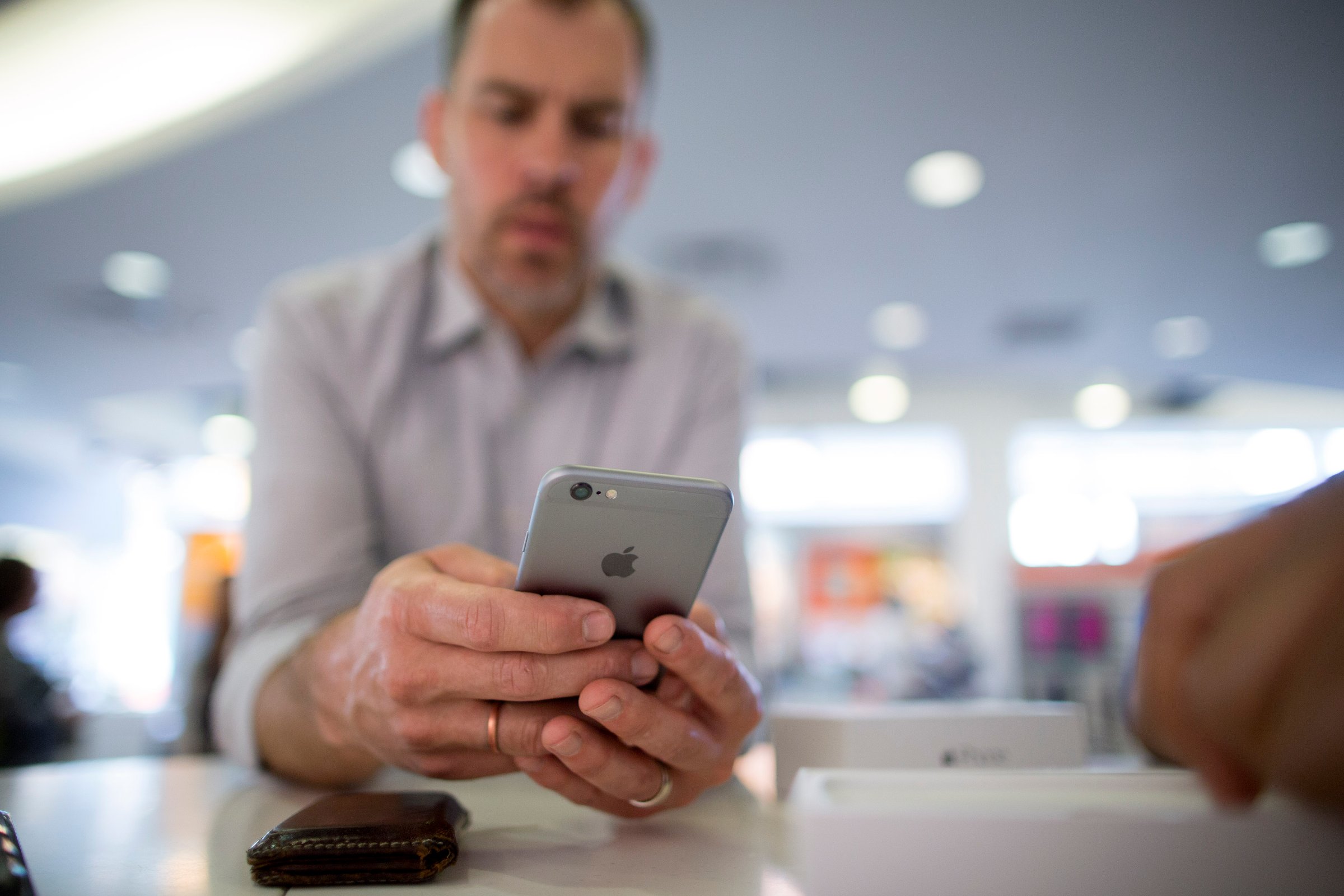
Experts — okay, maybe just your company’s tech guy — say shutting down your computer is a good idea if you’re headed home for the night or if you’ll be out of the office for a few days. But smartphones are a different story. These 24/7 supercomputers never seem to get a rest. Surely that can’t be good for them… right?
Wrong, says iFixit founder Kyle Weins, a technology expert who tears apart the most popular products on the market, exploring and explaining how our favorite devices work. “I would say that shutting down your phone at night isn’t something that necessarily falls under routine maintenance,” he says.
The reason why shutting down your computer is good advice in the first place is the crux of the issue. Your IT department likely recommends that you power down your computer nightly simply as a cost-saving measure, says Weins. When computers are left on, they use electricity, and electricity costs money. Even energy-saving sleep modes sip “vampire power,” a small amount of electricity that, when added to all the other computers not completely turned off, totals significant wastefulness.
Smartphones, meanwhile, have batteries and only draw power from an electrical outlet when they are plugged in. Of course, these mobile devices have their own challenges when it comes to power management — namely batteries wearing down — but according to Weins, shutting your smartphone off won’t necessarily help save your battery. “Batteries in phones have a finite lifespan — the more that you use them, the faster that battery wears out,” he says.
In general, smartphone batteries have a life of between 300 to 500 full-charge to fully-discharged cycles, estimates Weins. “Apple claims their phones can run 400 cycles then are at 80% capacity — that’s what they claim,” he says, noting the reality, for him, is “a fair amount worse than that.”
And even if you only use a fraction of your phone’s battery and then recharge it to 100 percent, that still counts towards a full cycle. “If you wear your battery down 50 percent then charge it back up, that’s half a cycle,” says Weins.
Powering down your smartphone at night won’t help preserve the battery, since it’s unlikely that you’d be using the device at that time, anyhow. “It comes to how hard you use your phone,” says Weins. For instance, if you’re constantly streaming music, watching videos, or using it as a GPS device while mounted on a car’s sun-soaked dashboard (heat kills batteries too), your phone’s power won’t last very long.
Another thing tech support people frequently ask is if you’ve restarted your computer. So, wouldn’t this help with a wonky smartphone, too? Yes and no, says Weins. In general, restarting a computer will disrupt any background processes that may be running, or clear up memory leaks that have been draining your system’s resources — that applies to both PCs and smartphones. But today’s operating systems — not just Mac OS X and Windows 8.1, but also Apple’s iOS and Google’s Android — are very good at isolating these problems on the software level. So, quitting your apps is just as helpful, not to mention less cumbersome, as restarting your device.
Of course, there is one exception. Periodically draining your battery to zero percent and letting your smartphone die is advised, though sparingly. All battery-powered computers have counters used to calibrate the battery, which lets the device know how long it will actually last. “If you run your battery all the way down to zero every once in a while — once a year is fine — it makes the percentage count on your battery more accurate,” says Weins.
So once a year, not once a week, power your phone off all the way. And don’t let anyone else — not even your IT guy —tell you otherwise.
More Must-Reads from TIME
- Why Trump’s Message Worked on Latino Men
- What Trump’s Win Could Mean for Housing
- The 100 Must-Read Books of 2024
- Sleep Doctors Share the 1 Tip That’s Changed Their Lives
- Column: Let’s Bring Back Romance
- What It’s Like to Have Long COVID As a Kid
- FX’s Say Nothing Is the Must-Watch Political Thriller of 2024
- Merle Bombardieri Is Helping People Make the Baby Decision
Contact us at letters@time.com